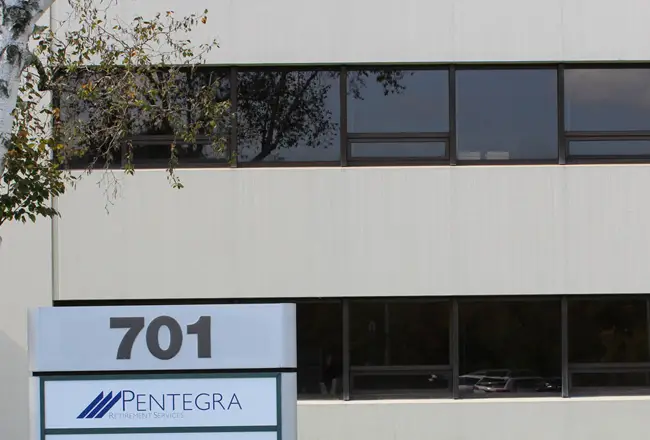Investors sue Pentegra of White Plains alleging mismanagement
A group of investors has sued Pentegra Services Inc., claiming that the White Plains pension company mismanaged costs of one of its retirement plans.
Four participants in the $2.1 billion plan filed a class action lawsuit against Pentegra and the plan”™s board of directors on Oct. 13 in U.S. District Court, White Plains.
The Pentegra Defined Contribution Plan for Financial Institutions wasted money on expensive strategies, according to the complaint, resulting from imprudent practices.
“We reject the claims and intend to mount a rigorous defense against them,” Robert D. Alin, Pentegra”™s general counsel, said in a brief telephone conversation. “In fact, Pentegra is looking forward to strongly defending this lawsuit and standing up for the valuable services we provide to participating employers and their employees.”

Pentegra was founded in 1943 by eight Federal Home Loan Banks, to provide a pension plan for employees. It has since expanded to include banks, savings and loan associations and other financial institutions.
The pension plan is one of the largest in the U.S., with more than 27,000 participants. The company also offers other products and services and manages nearly $15 billion in assets.
The plaintiffs contend that Pentegra has some of the highest costs among its peers.
The plan”™s T. Rowe Price Blue Chip Growth fund, for instance, charges $7 annually for every $1,000 in assets, whereas a comparable domestic equity fund would charge $3 to $3.50.
The seemingly slight difference adds up over time, according to the complaint, as employees get lower annual returns and lose the compounding effect of their investments.
Many mutual funds charge higher or lower expense ratios depending on the investor. Large institutional buyers such as Pentegra, for example, can use their size to bargain for the cheapest share class.
But Pentegra allegedly paid more than 12 times as much in expense fees for collective trust funds than it could have paid for an identical fund.
“There is no good-faith explanation for utilizing high-cost share classes when lower-cost share classes are available for the exact same investment,” the complaint states. “Moreover, the plan did not receive any additional services or benefits based on its use of more expensive share classes. The only consequence was higher costs for the plan”™s participants.”
The complaint states that Pentegra paid recordkeeping expenses directly from assets in the plan, in a technique called revenue sharing that can be used to hide fees.
Recordkeeping fees in 2018 totaled nearly $10.6 million, or $389 per plan participant, according to the complaint, but should have been less than $136,135 or $5 per participant.
“Using revenue sharing to pay for recordkeeping resulted in a worst-case scenario for the plan”™s participants,” the complaint states, “because they were saddled with outrageously high recordkeeping fees.”
The plan”™s structure is “rife with potential conflicts of interest,” according to the complaint, “because Pentegra and its affiliates were placed in a position that allowed them to reap profits from the plan at the expense of plan participants.”
Pentegra and the plan”™s board of directors are accused of breaches of fiduciary duty.
The Pentegra name is derived from the words pension and integrity.
“Pentegra is a different kind of retirement provider. That”™s because we”™re a fiduciary first,” the company states on its website. “We”™re independent. We have no conflicts of interest.”
The complaint was filed on behalf of Richard Greenberg, Whippany, New Jersey; Gregory S. Digsby, Marietta, Georgia; Lindsey Clark, Des Moines, Iowa; and Chrystal Lewis, Charlotte, North Carolina.
They want the court to declare the case a class action on behalf of all plan participants. They are demanding that Pentegra and the plan”™s board of directors “make good” on all losses resulting from imprudent investments.
The complaint was filed by Pennsylvania attorneys Donald R. Reavey and Mark K. Gyandoh.